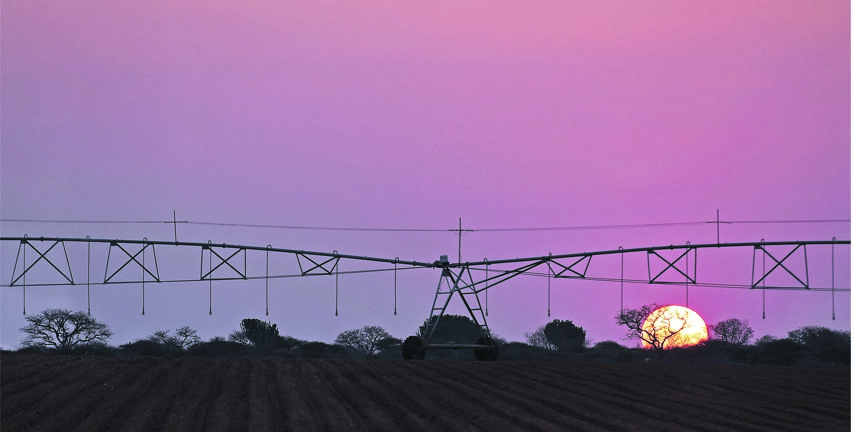
The constitutional review committee on the expropriation of land without compensation has completed its work and presented its report to both houses of Parliament and the report has been adopted. The next step is for the amendment of the Constitution process to begin in earnest with the formation of an ad hoc committee on the amendment bill, which should pass in both houses – and also pass constitutional muster.
The real task will be finding the best methodologies to realise the new amendment fully and to strike the best socioeconomic balance. Most importantly, however, particularly for those who remain apprehensive about this amendment, it’s important not to lose sight of what the potential of a post-expropriation South Africa could be.
The economic and social benefits of higher levels of land and property ownership in any country are well documented. Ensuring that property ownership is widespread and deeply felt can lift a country’s economic prospects, give its GDP a leap and increase the per capita income.
Research has shown that where there are high levels of property ownership there are also high levels of educational outcomes. Children of property owners fare better at school than those who are either renting homes or have unstable boarding.
This makes sense not only because property owners can draw down on their equity and build decent homes or pay for their children’s school fees but the security of a home, of assets, gives children the psychological comfort and certainty necessary to focus on their educational responsibilities. This has meant that children who come from family-owned homes have a lower rate of dropping out.
The second benefit of owning property is that in most communities, homeowners are more involved. They participate in community safety programmes and economic projects and local elections.
Property owners, research has shown, are healthier and more fulfilled, making them more productive and less of a burden on the health system. Property is security, which you can use to secure more finances, start a business or build more assets, and this affects your mental health and wealth standing in society. The distress of not having property or a home of your own results in many mental health problems.
Communities with high levels of property ownership also seem to have lower levels of crime. It is said that its easier to spot a criminal in a stable neighbourhood of homeowners than shifting rental neighbourhoods where people come and go.
It is clear then that people who own land and property are empowered, with a string of other economic and social benefits.
Land expropriation will solve another big problem. Leaving land unused stifles economic growth. Concentration of land ownership in the hands of the few results in kilometres of land lying dormant and being used at most to accumulate value and for speculative purposes.
This is no different to the general concentration of wealth. If 10 people have R10 million, they won’t spend much of it. If 1 000 people have R10 000, they will likely spend it and boost economic activity. More land ownership will result in higher levels of land use and an economic boost.
Expropriation of land without compensation will, therefore, at its tail end, be the best thing to happen to our country and our economy. The big question, of course, is how we find the right path to lead us to this desired end.
What are the economics of expropriating land without compensation? In an economic system that is at equilibrium, what is given to a person must necessarily be coming or taken from another person or entity. Nothing exists in limbo. The rewards, however, do not have to be monetary. We do give away things for free, the philanthropic work of billionaires, scholarships, welfare, houses, and these do not collapse the system because those who give away not only derive the satisfaction of changing another person’s life but are fully aware their contribution. Shelter for the homeless and livelihoods for the poor bring collective gains to society.
If you give away your land to those who don’t have it, it will improve the country’s disposition and entrench social cohesion, resulting in everyone doing well overall, that is an economic reward.
What becomes an economic problem is “forced redistribution”. This means in South Africa white people can change the entire economic risk of land redistribution and turn it into an economic boost by simply viewing it positively.
David and Elaine Potter, a UK couple, who own a table-grape farm in Stellenbosch, did just that. In October they handed over a “R30 million architect-designed village for their workers on their farm in the Cape winelands and transferred titles to them”. They call this village, for good measure, Lumière, meaning “new dawn”. This couple understood that giving their workers land would not be enough. They also had to give them quality houses befitting the neighbourhood where they have worked for their entire lives. Now these workers can count among their neighbours the controversial Remgro chairperson Johann Rupert, Richard Branson and Analjit Singh.
The thinking of this couple in giving away the estate was that it was time to break the generational cycle, because not all the children of farmworkers want to be farmworkers, some want to be accountants and engineers, and an opportunity to own property and a home is a key ingredient for that to happen.
The problem of course is that as long as we have political parties such as the DA and Freedom Front Plus, among others, creating an impression that the country is engaged in forced redistribution, uninformed investors will be apprehensive. Real investors, however, such as the Potters, who have made money in this country since the 1990s, decided, of their own accord, that redistributing land and wealth to their workers was the right thing to do.
Welcome to the New Dawn.
Diko is spokesperson of the ANC in the Western Cape




 Publications
Publications
 Partners
Partners









